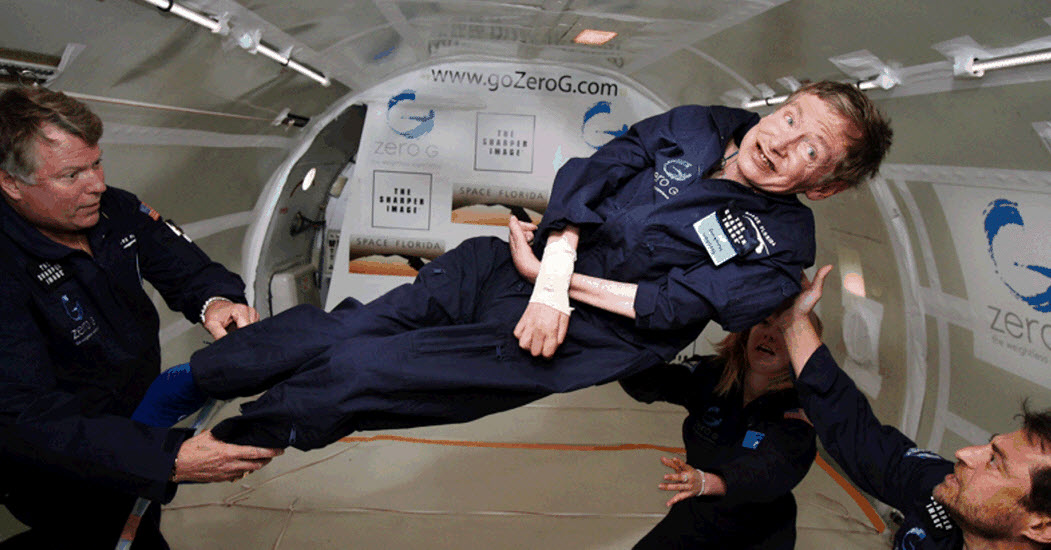Many of us would love the opportunity to go into space but it is unlikely that we will have a chance. That isn’t the case with theoretical physicist Stephen Hawking, however, and he has revealed that he is actually making the trip. It was revealed during an interview on Good Morning Britain, and we couldn’t be happier for him. The trip into space will take place on the commercial space line, Virgin Galactic.
“I have already completed a zero-gravity flight which allowed me to float, weightless,” Hawking said. “But my ultimate ambition is to fly into space. I thought no one would take me, but Richard Branson has offered me a seat on Virgin Galactic and I said ‘yes’ immediately.”
Virgin Galactic’s founder, Sir Richard Bronson, said that he wanted to send Hawking into space as recently as 2015: “Professor Stephen Hawking is one of the people I admire most in the world, an undisputed genius who has opened our eyes to the wonders of the universe, while also happening to be a kind and delightful man,” Branson said in a statement at the time. “He is the only person I have given a free ticket with Virgin Galactic, and he is signed up to fly as a Future Astronaut with us if his health permits it.”

This trip would likely take place some years in the future and there may be some complications for the 75-year-old cosmologist. Since the age of 21, Prof. Hawking has lived with ALS, a disease that causes the degeneration of the nerves of the brain and spinal cord. It is more commonly known as Lou Gehrig’s disease.
They hope that the launch would yield some vital information on how gravity affects the motor neurons. Our mobility and organ function is tested on earth, where we are at 1G. In spaceflight, humans are exposed to different types of gravity conditions. There are already tests underway that investigate how “altering gravity can have profound effects on the body, particularly the development of muscles, but the reasons and biology behind gravity’s effect are not fully known.”
Studies have been made on nematode worms that showed how increasing gravity contributed to more nerve defects in muscles and altering gravity impacts the motor neuron development. The effect of zero gravity has yet to be tested.
NASA has also done its share of studies on how gravity affects the nervous system. During space travel, astronauts are exposed to prolonged weightlessness and it can lead to loss of muscle strength, volume and low bone density. Those conditions could contribute to a reduced spinal cord excitability and could affect the ability to walk.
Astronauts undergo a rigorous exercise program to counter the loss of bone and muscle mass due to spaceflight. After five days of space travel, spinal cord function decreases significantly and it could last up to date days after landing, even with exercise. On earth, prolonged bed rest did not have the same effect and that shows those changes may be directly due to space travel.

Stephen Hawking is considered to be one of the smartest men on the planet. He did take a moment to talk to Good Morning Britain about the meaning of life. “I have no idea. I do remember when I was happiest. It was 1967, and the birth of my first child, Robert. My three children have brought me great joy.”
Hawking is a believer in climate change and science education. He spoke out on a number of subjects in that interview, but it is the space travel that captured our attention.
Be sure to share this with your friends on Facebook

